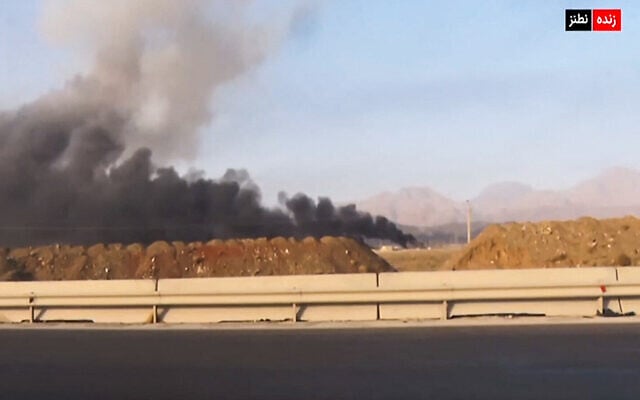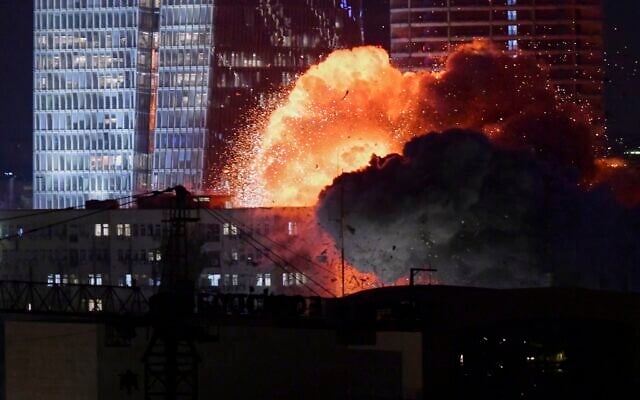


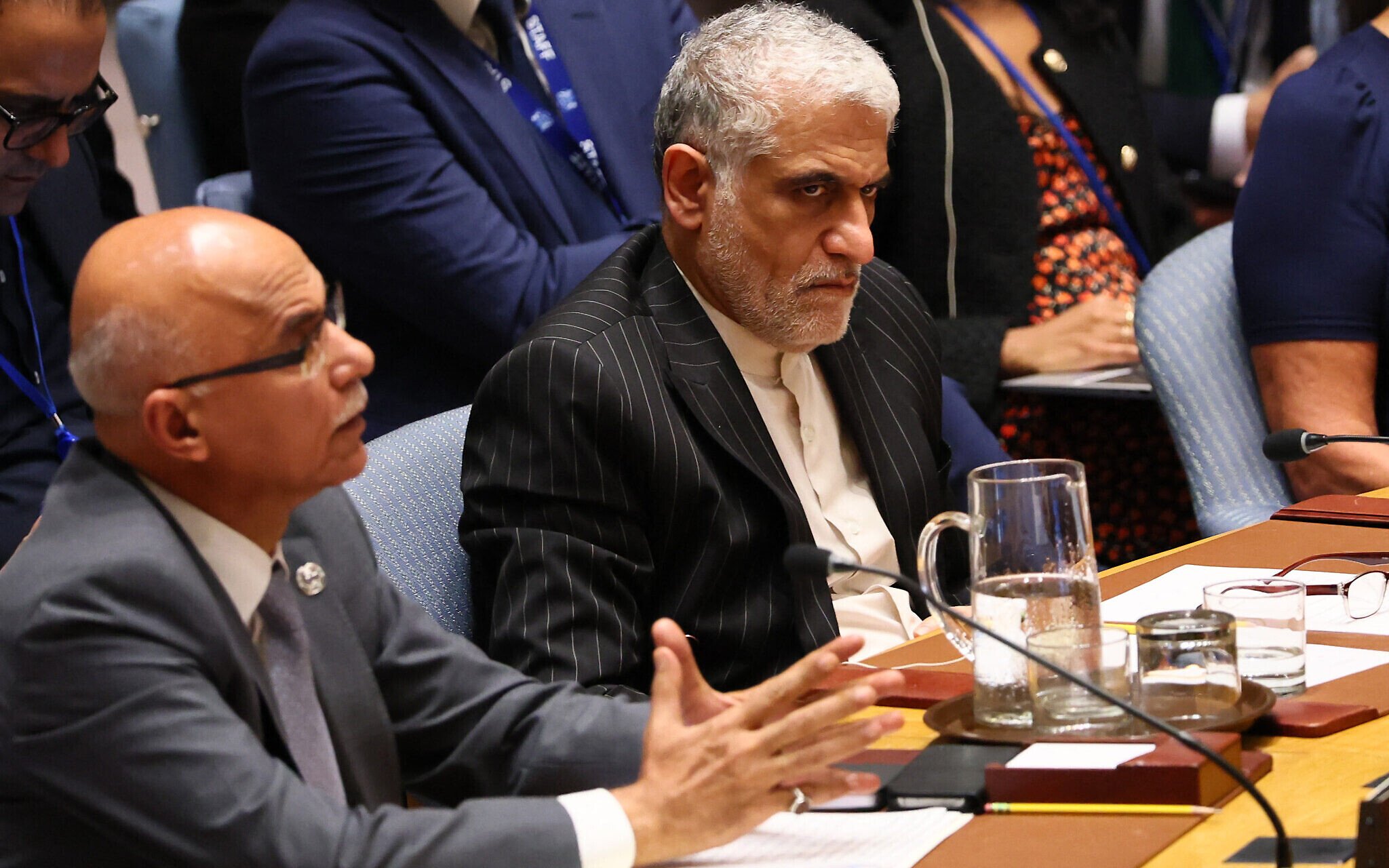
The United States on Friday told the United Nations Security Council that it would “be wise” for Iran to return to the negotiating table as Tehran accused the US of taking part in Israeli strikes on its nuclear and missile facilities.
Senior US official McCoy Pitt told the world body the US will continue to seek a diplomatic resolution that ensures Iran will never acquire a nuclear weapon or pose a threat to stability in the Middle East.
“Iran’s leadership would be wise to negotiate at this time,” Pitt told the council. While Washington was informed of Israel’s initial strikes ahead of time it was not militarily involved, he said.
A sixth round of talks was set to take place in Oman on Sunday, but it was unclear if it would go forward. Iran’s foreign ministry said US conduct amid the ongoing Israeli attacks had rendered the talks “meaningless.” However, state media on Saturday quoted foreign ministry spokesman Esmaeil Baqaei as saying, “It is still unclear what decision we will make for Sunday.”
Iran’s Foreign Minister Abbas Araghchi had requested the Security Council meeting in a letter to the 15-member body, saying Israel “has now crossed every red line, and the international community must not allow these crimes to go unpunished.”
Israel had not only violated Iran’s sovereignty, but also committed “acts of aggression and war crimes,” said Araghchi.
“Iran reaffirms its inherent right to self-defense as enshrined in Article 51 of the UN Charter and will respond decisively and proportionately to these unlawful and cowardly acts,” Araghchi wrote.
Iran launched several waves of missiles at central Israel overnight, killing three people, injuring dozens and causing widespread destruction.
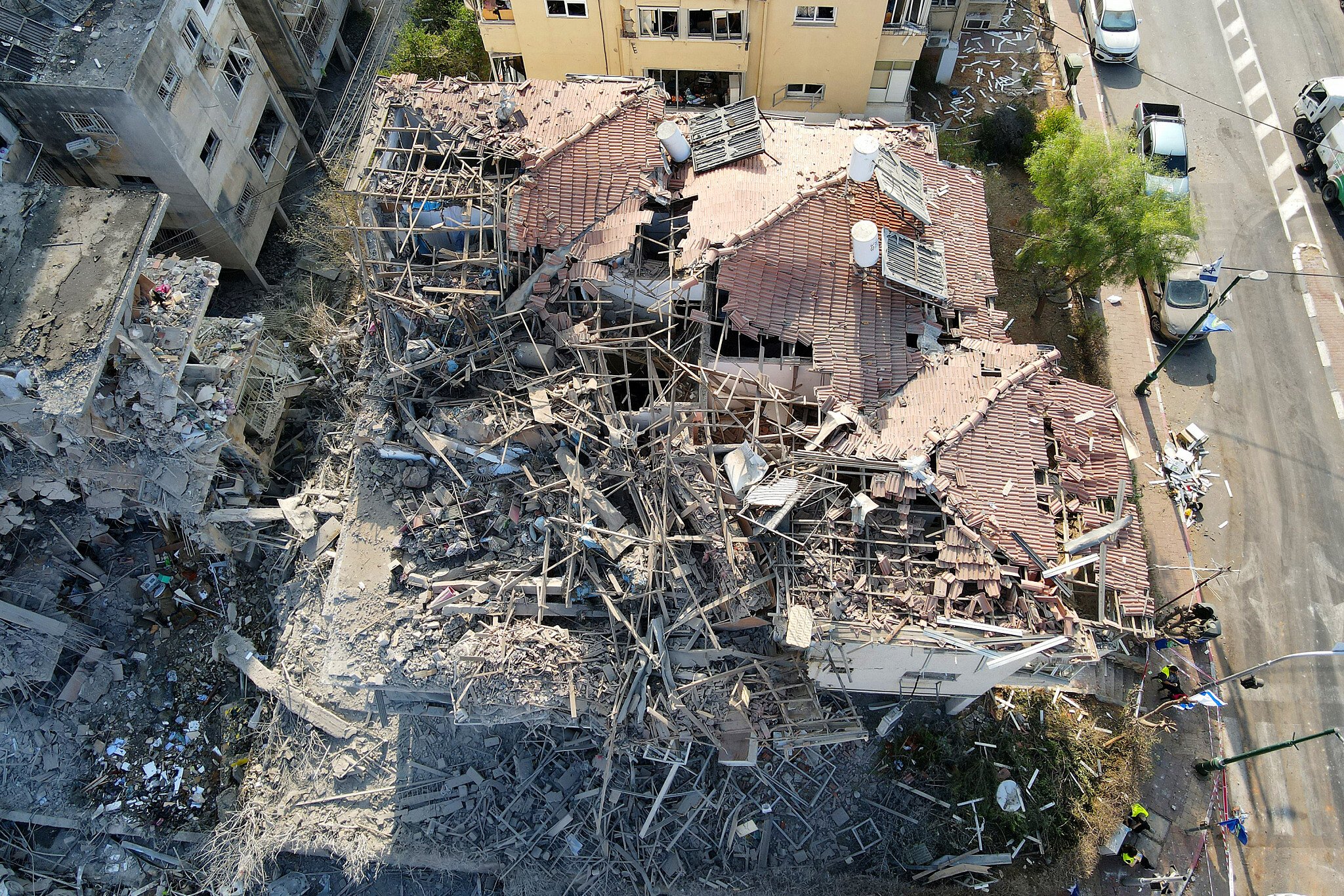
Iran’s UN envoy Amir Saeid Iravani accused Israel of seeking “to kill diplomacy, to sabotage negotiations, and to drag the region into wider conflict.”
“Those who support this regime, with the United States at the forefront, must understand that they are complicit,” Iravani told the Security Council. “By aiding and enabling these crimes, they share full responsibility for the consequences.”
Iravani said that 78 people had been killed and 320 wounded in the first wave of strikes by Israel.
US President Donald Trump said Friday that he had given Tehran a 60-day ultimatum, which expired on Thursday, to make a deal over its escalating uranium enrichment program.
Despite publicly rejecting nuclear arms, Iran’s leaders, who are sworn to destroy Israel, have stockpiled uranium enriched to 60% — far beyond what is needed for civilian use and a short technical step from weapons-grade.
Ahead of the Security Council meeting, which was convened at Iran’s request, Israel’s UN Ambassador Danny Danon said Israel does not know how long its operations in Iran will last.
“We will continue to act until we know that we have eliminated the threats,” he said. “The goals of our operation are very clear — to make sure that Iran will not have nuclear capabilities and to stop the ballistic missile operation.”
Danon said Israel had been patient despite mounting risks.
“We waited for diplomacy to work… We watched negotiations stretch on, as Iran made false concessions or refused the most fundamental conditions,” Danon told the Security Council.
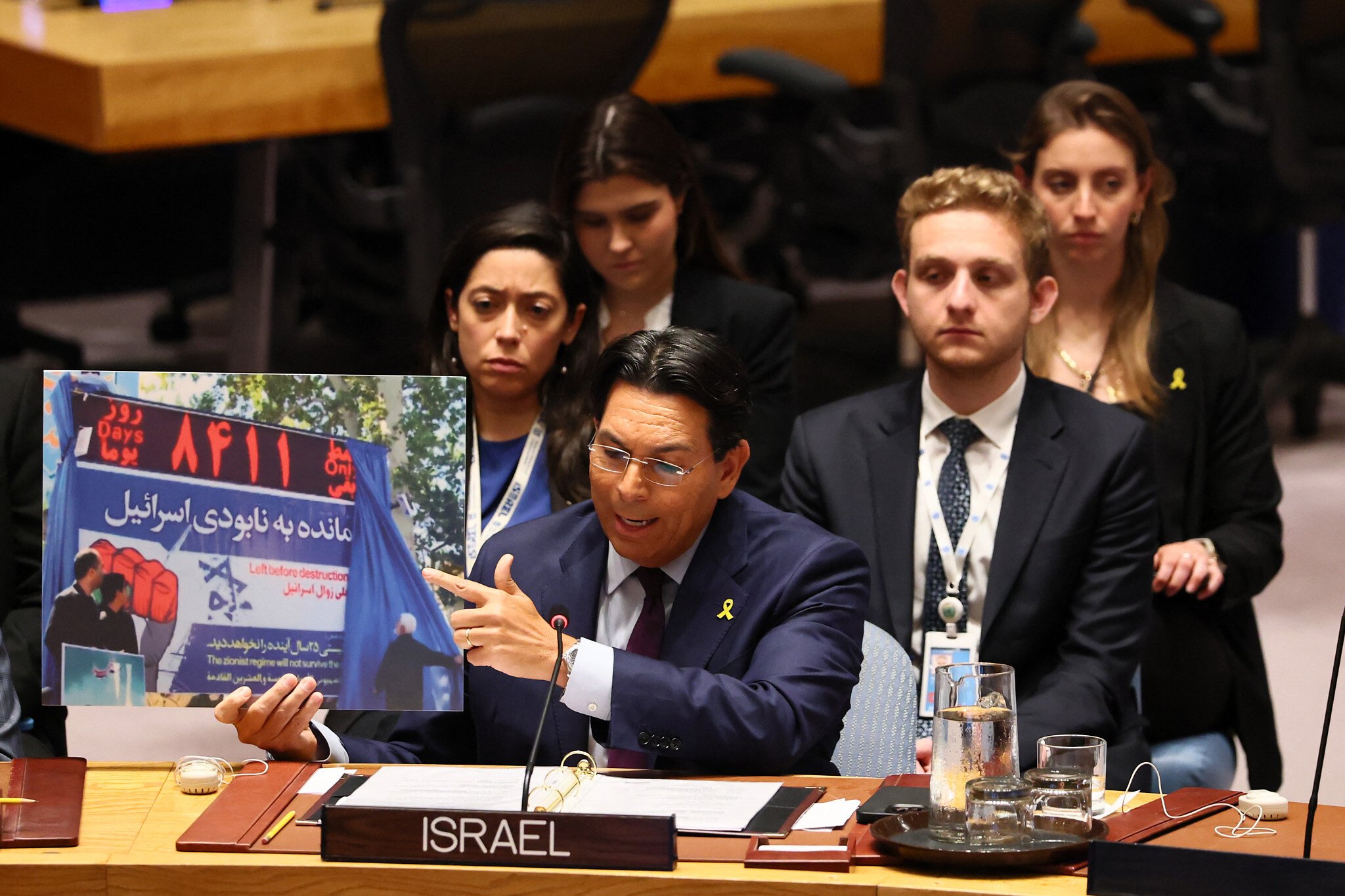
Iran had been “preparing for war” and Israel’s strikes were “an act of national preservation,” said Danon, adding that intelligence had confirmed Iran could have produced enough fissile material for multiple bombs within days.
China’s UN Ambassador Fu Cong condemned Israel’s actions in Iran, in quotes carried by China’s state-run Xinhua News Agency.
“China opposes the intensification of contradictions and the expansion of conflicts, and is deeply concerned about the consequences that may be brought about by Israel’s actions,” Fu was quoted as saying.
China is seriously concerned about the negative impact of the current developments on diplomatic negotiations on the Iranian nuclear issue, said Fu.
Meanwhile, the Kremlin said Friday that Russian President Vladimir Putin condemned Israel’s strikes in Iran, as he held separate phone calls with Prime Minister Benjamin Netanyahu and Iranian President Masoud Pezeshkian.
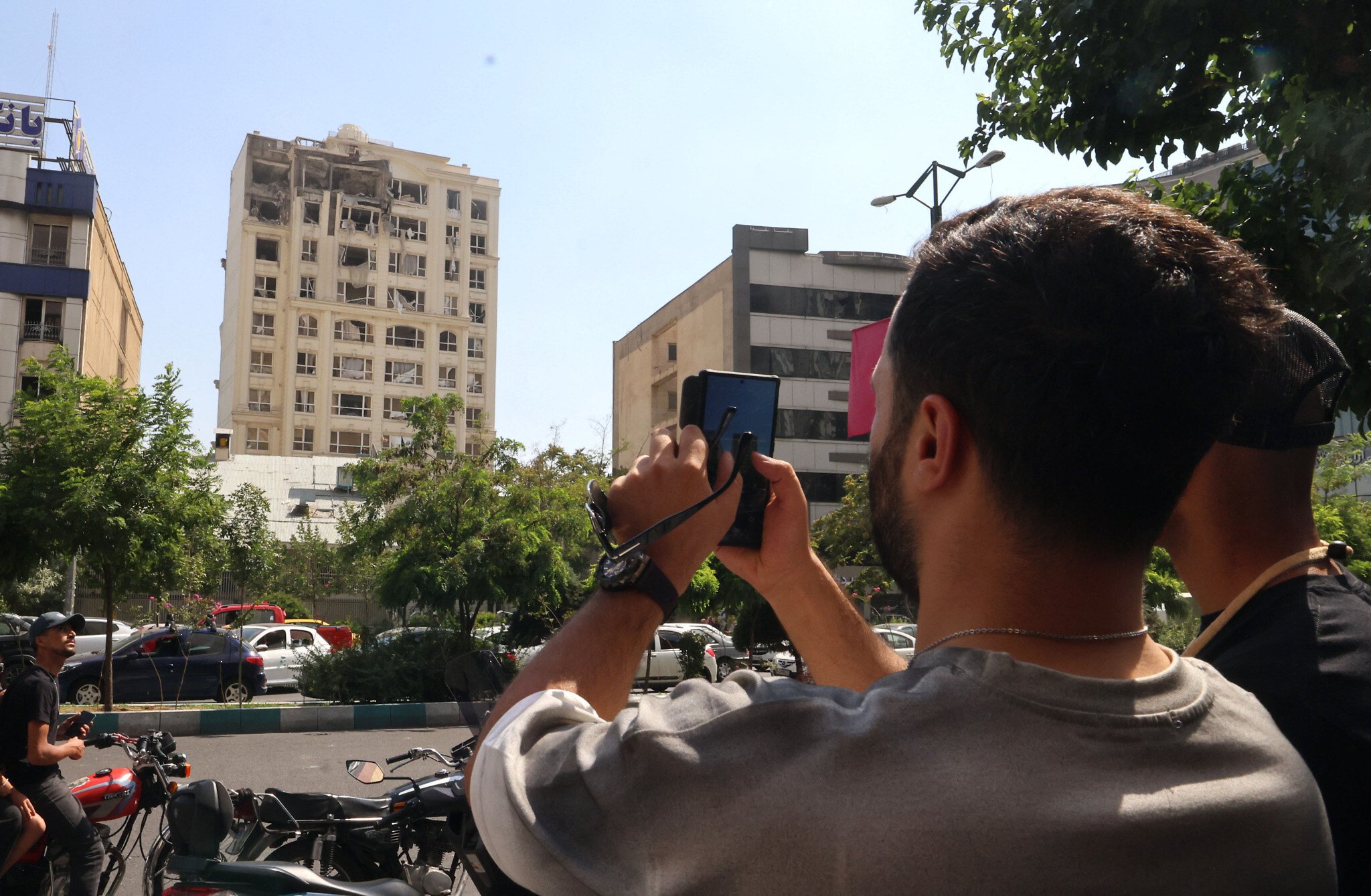
“Vladimir Putin stressed that Russia condemns Israel’s actions, which violate the UN Charter and international law,” the Kremlin said in a statement, adding that Putin told Netanyahu of his “readiness to provide mediation” to prevent further escalation.
Turkey’s Foreign Minister Hakan Fidan also demanded Israel abandon its “strategy to destabilize the region,” adding that nuclear negotiations initiated by Trump were the only way to resolve the conflict.
An exceptional meeting of the International Atomic Energy Agency’s Board of Governors will be held on Monday to discuss Israel’s strikes on Iran after at least one country on the board requested one at Friday’s regular, quarterly session of the body, diplomats said.
Any country on the board of the top UN nuclear watchdog can call a meeting under its rules.
Iran, which is not on the board, requested a meeting and its call was supported by board members Russia, China and Venezuela, diplomats said. The diplomats gave differing accounts as to which board member was the first to clearly make the request.
There was no sign of any push for a resolution or other action on Monday by the 35-nation board, said the IAEA’s top policymaking body.
IAEA chief Rafael Grossi told the Security Council Friday that Israel’s strikes had destroyed to above-ground section of the Natanz nuclear facility, as well as a section of the facility where uranium was enriched up to 60%.
The main centrifuge facility underground did not appear to have been hit, but the loss of power could have damaged the infrastructure there, he said.
Speaking at the IAEA governors’ meeting in Vienna on Friday, Qatari UN envoy Jassim Yaqoub Al Hammadi expressed “strong condemnation and deep denunciation” of Israel’s “blatant violation of Iran’s sovereignty,” according to a statement from the Qatari foreign ministry.
He “called on the international community to uphold its legal and moral responsibilities to urgently stop Israeli violations before it is too late.”
The IAEA Board of Governors had on Thursday passed a resolution brought by the US, UK, France and Germany accusing Iran of “many failures” to comply with nuclear safeguards. It was the first such resolution against Iran in two decades.
French President Emmanuel Macron told reporters at a news conference on Friday that information France had on Iran’s nuclear program was most concerning, adding that the program was close to a critical stage.
Macron said France did not recommend attacking Iran’s nuclear sites, saying there was still a “diplomatic route” to resolve the issue.
He ruled out France participating in an attack on Iran, but said France would take part in the defense of Israel, adding that support for Israel was not unconditional or without limits.
France, which helped Israel fend off Iran’s two first-ever attacks in April and October of last year, has not publicly claimed participating in Israel’s protection against Iran’s latest missile and drone attacks that began Friday night following Israel’s opening blow.
British Foreign Secretary David Lammy said Friday that he had spoken with his Iranian counterpart, Aragchi, to urge calm after what the UK diplomat described as Israel’s “unilateral act.”
“I spoke to my Iranian counterpart today to urge restraint at this time, and calm. I recognize that this is a moment of grave peril in the Middle East,” he told Sky News.
In a later post on X, Lammy said the government was “advising British nationals to avoid all but essential travel to Israel and the Occupied Palestinian Territories.”
German Foreign Minister Johann Wadephul also said no one benefits from further escalation in tensions between Israel and Iran, and called on all parties to return to negotiations.
Speaking in Cairo after talks with his Egyptian counterpart Badr Abdelatty, Wadephul said that he would travel from Egypt to Saudi Arabia for further talks on Saturday.
Wadephul had been expected in Israel on Friday but was forced to change his plans following the strike on Iran. He initially had planned to visit Jordan, Lebanon and Syria as well. The German foreign ministry left open on Friday if he would still make stops at those locations.


